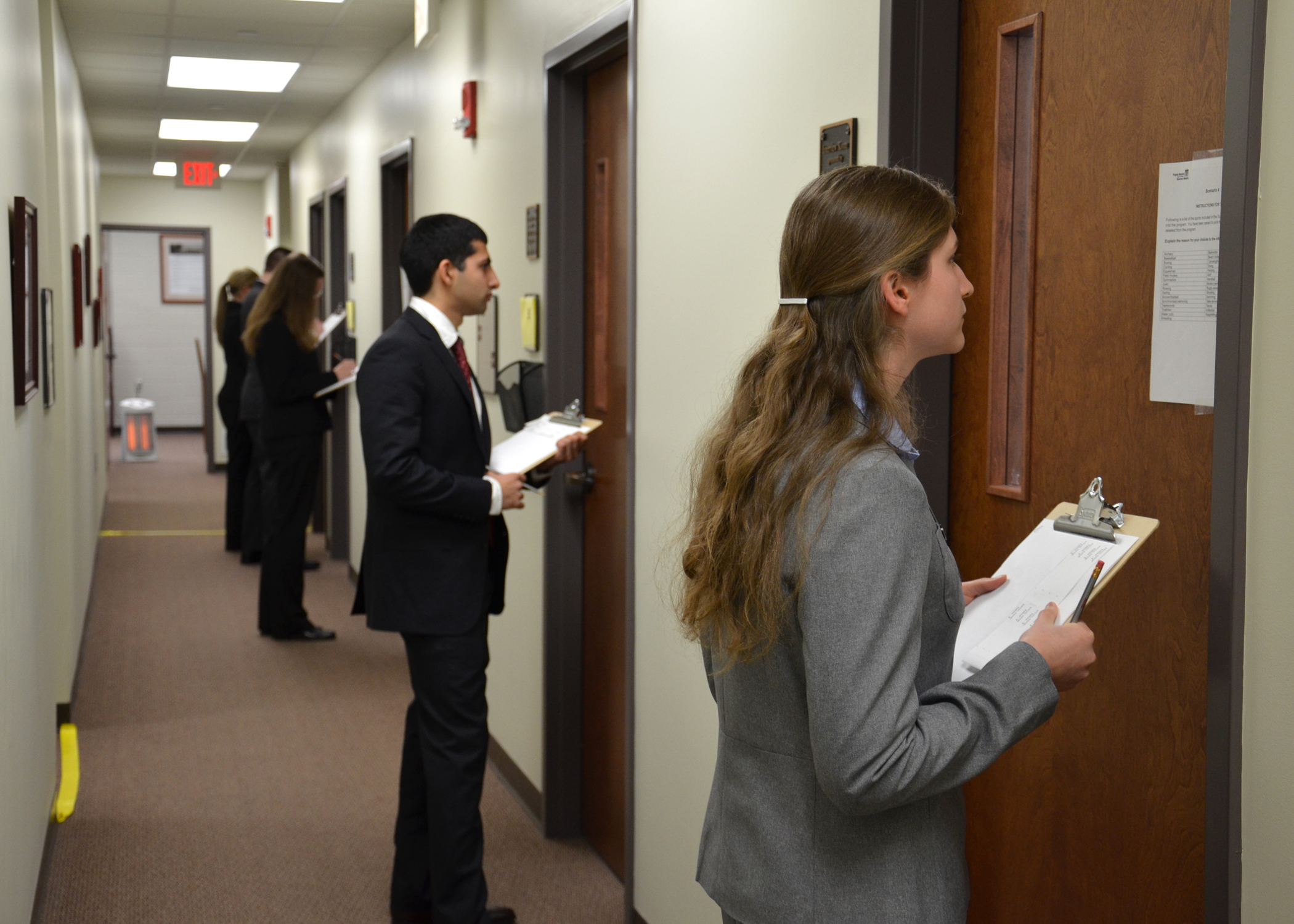Prospective students jockey for positions at veterinary college in record numbers

After rising to the top of a highly competitive application pool and braving last month’s snowstorm to make their best impression in a selective interview process, prospective students find out in early March whether they’ll have the opportunity to spend the next four years at the Virginia-Maryland Regional College of Veterinary Medicine.
A record-breaking 1,220 prospective students submitted applications to the veterinary college last fall, representing the fourth largest applicant pool in North America, according to figures from the Association of American Veterinary Medical Colleges.
For several years in a row, the college has seen gains in application numbers for its Doctor of Veterinary Medicine program, up 11 percent this year alone.
“Candidates from all around the country are applying to the Virginia-Maryland Regional College of Veterinary Medicine,” said Dr. Jacque Pelzer, director of admissions and student services. “Not only are we getting the word out more, we are also reaching out to students through social media. We are learning how to connect with the generation that’s applying to veterinary school.”
According to Pelzer, this year also marks the first that the college has engaged younger faculty members in the recruitment process. Once they reach the interview stage, prospective students interact with many different groups associated with the college, including faculty members, students, alumni, and practitioners in nearby states who volunteer their time as interviewers.
“During my visit I was struck by how wonderfully welcoming and informative the people are and how impressive the college is,” wrote one candidate after the interview.
Student ambassadors gave candidates and their families tours of the college, including the Veterinary Teaching Hospital. They also participated in a dinner with all of the interviewers and interviewees.
“As student ambassadors, not only do we introduce visitors to our program and facilities, but we also strive to get them as excited about the college as we are,” said Melani French of Manassas, Va., a third-year veterinary student and student ambassador. “In order to do this, we take the time to truly make their visit an experience as opposed to simply ‘just a tour.’ ”
Like some medical colleges, the Virginia-Maryland Regional College of Veterinary Medicine utilizes a multiple mini-interview format to assess a candidate’s non-cognitive skills such as critical thinking, problem solving, communication, ethics, and leadership. All interviewees participate in eight scenarios, which last six minutes each, and rotate through interview rooms for evaluation of how they respond to the scenarios.
“Keeping us in the dark about the kinds of questions we would be asked and the specific qualities that were being evaluated for made it easy to give genuine, natural answers to each scenario,” wrote another candidate.
The 273 candidates who interviewed with the veterinary college are vying for 120 seats in the Class of 2017. Of these, 50 will be from Virginia, 30 from Maryland, six from West Virginia, and 34 from other states and countries.
“There are about 6,000 prospective students who apply to North American veterinary schools through a common application process,” said Dr. Jennifer Hodgson, associate dean for professional programs, who explained that candidates apply to five schools on average. “This means that we see one out of every six applications in North America.”
Hodgson added that the interview process also affects how candidates perceive the college. “They have an opportunity to meet our faculty and students and see the facilities that we have,” she said. “Our job is not just finding the best students, but also convincing these applicants to come here.”
The college was the first in the United States to adapt the multiple mini interview format developed at McMaster’s Medical School in Canada for use in a veterinary program. Today, four other veterinary schools use the format. With the arrival of the Class of 2017 in August, every veterinary student at the college will have made it through the new interview process.
This article was written by Michael Sutphin.







